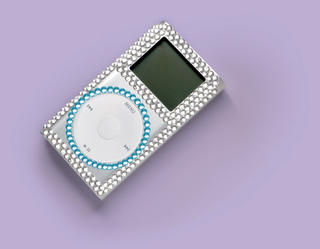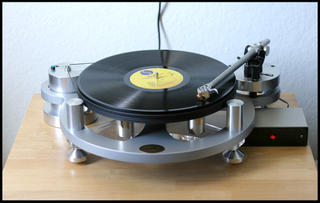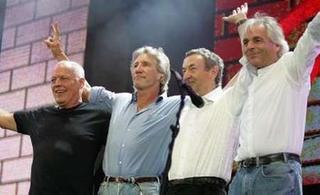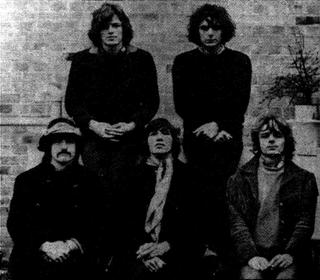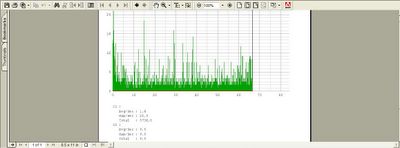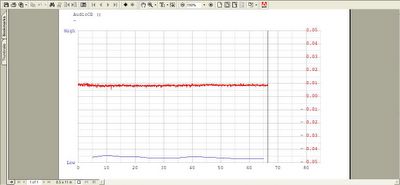Interestingly this theory of mine was helped to form by McIntosh labs who believes that their power supplies are in the signal path and are major contributors to that "MAC sound." What's ironic is that McIntosh doesn't believe in highend speaker cables or interconnects, let alone power cords. Mac has been very public about this belief. Only recently at trade shows did they start using better interconnects and speaker cable, just to "shut people up." The IEC socket of a removable power cord does compromise the connection slightly but allows for much better power cables to be used, a slight step backwards for the possibility of a couple of major steps forwards. But the same cord soldered directly to the power supply versus being removable and connected to an IEC socket would be the best solution.
Other arguments brought against power cords have to do with the fact that the last 6 feet can’t make up for 50 miles of low quality wire between the utility company and our homes. Again, this simply doesn’t stand up to close scrutiny. First off, it isn’t the last six feet, it’s the first six feet. The power company doesn’t push power to us, we pull power from the electrical company. If this weren’t the case we would not be able to turn off electrical devices. Second, the power that they are running long distances is different from what we find in our homes. In that form it is much less susceptible to EMI and RFI interference. It is converted at a nearby pole by a transformer before entering our homes. In the walls of our homes the electricity is shielded from stray EMI interference by the conduit through which it is running. So the point that it is most vulnerable to these problems is from the outlet to our components.
Aftermarket power cords differ in a number of ways from stock units
-They are a thicker gauge wire than stock units. All things being equal, the thicker the gauge the faster large amounts of current can be delivered to the component. This higher current capability leads to more controlled, more extended bass. Not to mention better dynamics.
-They have better shielding which helps reject EMI interference. This creates blacker background from which the music emerges. Improving the perception of low level detail. This is not new musical information but information that had previously been obscured. The amplifier is also freed from having to amplify the high frequency hash which gives the system a greater sense of ease.
-The plugs make better physical contact. When dealing with electricity poor physical contact between outlets and the blades of the plug causes the electricity to jump the gap between the two surfaces. This causes heat and when dealing with electricity heat equals resistance. This resistance again slows down current delivery.
Under evaluation are three power cords from Transparent audio. All were used to replace the stock power cord on a Panamax Max 5510 power conditioner, which was set to balanced power. Patricia Barber’s “Love, Put On Your Faces” from her album “Modern Cool” and “Man Over” by Robinella and The CC String Band off of their self titled album were the main tracks used for this series of tests.
Transparent High Performance Power Link:
The sibilance on s and t sounds was much cleaner than with the Panamax stock power cord, which tended to make these sounds more aggressive than is proper. Distinguishing between the original event and the reverberation that followed was also much easier with the HPPL cord. The stock cord tended to smear the transition between these two distinct components of a sound. Bass intergraded with the rest of the music much more seamlessly, and lost the mechanical quality that the stock unit added. The Piano on the Barber track had much more body, it was impossible to mistake it for anything other than a grand piano.
Transparent Power Link Plus:
With this power cable the piano has a greater sense of ease and there is an increase in micro and macro dynamics. The piano sounds less forced and more effortless than it did with the HPPL power cord. Gone is the angular sound that plagued the attack of bass notes, it is replaced with a more naturally rounded tone. Bass notes also have more consistent authority, midbass notes are now closer in weight to deeper bass notes. The cleanliness of sibilance has also taken another step forward.
Transparent Power Link Reference:
Piano notes have greater sustain and thus take longer to decay into a more black background. The weight of midbass notes is greatly improved matching the power of lower bass notes much better than the PLP. The choir sounds like it is made up of more voices, but at the came time it is easier to pick out individual voices in that choir.
